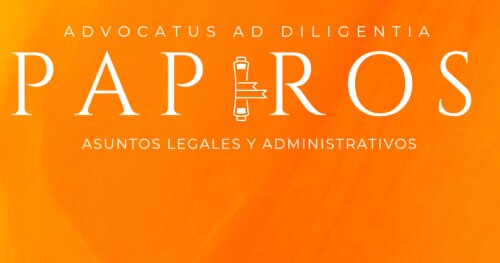Best Tax Lawyers in Asunción
Share your needs with us, get contacted by law firms.
Free. Takes 2 min.
List of the best lawyers in Asunción, Paraguay
About Tax Law in Asunción, Paraguay
Tax law in Asunción, Paraguay, is governed by a combination of national policies and local municipal rules. The Paraguayan tax system is overseen by the "Subsecretaría de Estado de Tributación" (SET), which is responsible for implementing tax laws, regulations, and enforcement. The tax structure primarily consists of personal income tax, corporate income tax, value-added tax (VAT), and various local municipal taxes. Asunción, being the capital city, adheres to these national taxes while also implementing city-specific levies and regulations that individuals and businesses must comply with.
Why You May Need a Lawyer
There are several situations where seeking legal advice on tax matters in Asunción might be necessary. These include interpreting complex tax filings, handling disputes with the taxation authority, proper tax planning and compliance for businesses, and understanding the implications of international trade on local tax responsibilities. Individuals may also require assistance with personal income tax issues, especially when dealing with expat tax rules or inheritance. Additionally, non-compliance with tax regulations can lead to significant penalties, making professional legal counsel vital to navigating these challenges effectively.
Local Laws Overview
In Asunción, and Paraguay in general, tax laws are primarily governed by the Paraguayan Tax Code, which sets out the principles for taxation. Key aspects include:
- Income Tax: Both individuals and corporations are subject to this, with progressive rates for individuals and a flat rate for corporations.
- Value-Added Tax (VAT): Applied to most goods and services, this is an important tax revenue source.
- Withholding Tax: Applicable to certain payments, including those to non-residents.
- Municipal Taxes: These vary by locality, and in Asunción, businesses must also pay specific municipal taxes.
- International Agreements: Paraguay has treaties to avoid double taxation and encourage trade, impacting tax obligations for international dealings.
Frequently Asked Questions
What is the tax year in Paraguay?
The tax year in Paraguay follows the calendar year, starting January 1st and ending December 31st.
Are there tax treaties between Paraguay and other countries?
Yes, Paraguay has entered into several tax treaties aimed at avoiding double taxation and preventing tax evasion, particularly with countries in the Mercosur region.
What is the standard VAT rate in Paraguay?
The standard VAT rate in Paraguay is 10%, applied to most goods and services.
Is there a capital gains tax in Paraguay?
Capital gains are taxed as part of the individual or corporate income tax, at the applicable rates for these taxes.
How are expats taxed in Paraguay?
Expats in Paraguay are taxed on their Paraguayan-sourced income and may be subject to different tax rules based on their residency status.
Do self-employed individuals need to pay taxes in Paraguay?
Yes, self-employed individuals must register as a taxpayer and pay taxes on their income, both VAT and personal income tax may apply.
How can I avoid double taxation?
Utilizing tax treaties between Paraguay and other countries can help mitigate the risk of double taxation. Consulting a tax lawyer can assist in navigating these treaties.
What penalties exist for tax evasion in Paraguay?
Penalties can include fines, interest charges on unpaid taxes, and in severe cases, criminal charges. It’s important to comply with all relevant tax laws.
Are charitable donations tax-deductible in Paraguay?
Certain charitable donations to recognized non-profits may be tax-deductible; however, specific rules apply, and it's best to consult with a tax lawyer for detailed guidance.
What tax incentives exist for new businesses?
Paraguay offers various tax incentives for new and foreign investments, especially in sectors such as renewable energy and infrastructure development.
Additional Resources
For further assistance and information on tax laws in Asunción, Paraguay, consider contacting the following:
- Subsecretaría de Estado de Tributación (SET): The governmental body responsible for tax enforcement and regulations.
- Local Municipal Offices: For information on municipal taxes and obligations.
- Legal and Accounting Professionals: Consulting with a tax lawyer or an accountant with expertise in Paraguayan tax law can provide invaluable guidance.
- Chambers of Commerce: These organizations often provide resources and support for businesses, including tax-related matters.
Next Steps
If you need legal assistance with tax matters in Asunción, it’s advisable to consult with a qualified tax lawyer. Begin by identifying your specific needs - whether it's personal tax advice, business compliance, or dealing with disputes. Research legal professionals who specialize in tax law within Paraguay, checking their credentials and reviews. Arrange a consultation to discuss your situation and understand the lawyer's expertise and strategy for handling your case. Professional legal advice is crucial to adequately navigating complex tax issues, ensuring compliance, and avoiding costly penalties.
Lawzana helps you find the best lawyers and law firms in Asunción through a curated and pre-screened list of qualified legal professionals. Our platform offers rankings and detailed profiles of attorneys and law firms, allowing you to compare based on practice areas, including Tax, experience, and client feedback.
Each profile includes a description of the firm's areas of practice, client reviews, team members and partners, year of establishment, spoken languages, office locations, contact information, social media presence, and any published articles or resources. Most firms on our platform speak English and are experienced in both local and international legal matters.
Get a quote from top-rated law firms in Asunción, Paraguay — quickly, securely, and without unnecessary hassle.
Disclaimer:
The information provided on this page is for general informational purposes only and does not constitute legal advice. While we strive to ensure the accuracy and relevance of the content, legal information may change over time, and interpretations of the law can vary. You should always consult with a qualified legal professional for advice specific to your situation.
We disclaim all liability for actions taken or not taken based on the content of this page. If you believe any information is incorrect or outdated, please contact us, and we will review and update it where appropriate.
















